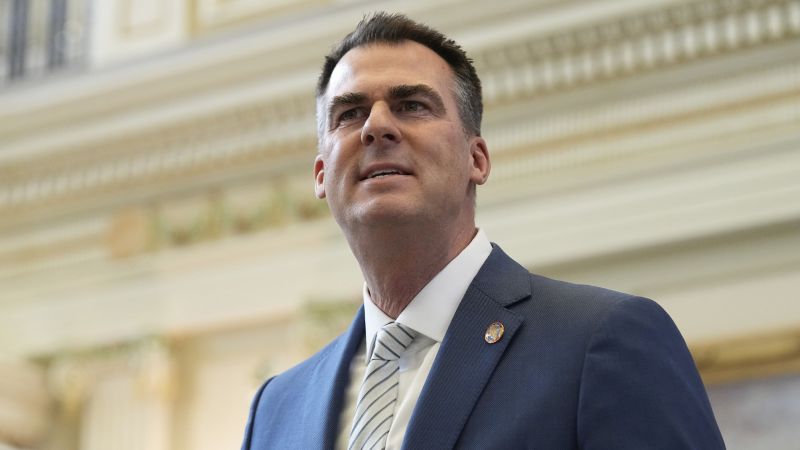Editor’s Note: A version of this article first appeared in the “Reliable Sources” newsletter. Sign up for the daily digest chronicling the evolving media landscape here.
America’s most-watched PBS station is on the verge of going dark.
The Republican governor of Oklahoma, Kevin Stitt, recently vetoed a bill that would have renewed the license and provided millions in funding for the Oklahoma Educational Television Authority, the statewide PBS network that reaches more than 650,000 viewers a week. Stitt took issue with what he alleged was LGBTQ-inclusive programming on the station, claiming to Fox News that it amounted to the “indoctrination and over-sexualization of our children.”
“It doesn’t line up with Oklahoma values,” Stitt told the right-wing network this week in an interview about the decision.
The move from Stitt to attack the home of family friendly programs such as “Sesame Street,” “Clifford the Big Red Dog,” and “Mister Rogers” is representative of a new and quickly expanding front in the culture wars. Republicans, most prominently Florida Gov. Ron DeSantis, have over the last year laced into Disney, claiming the intentionally inoffensive brand is really a “creepy” company engaged in “grooming” children with radical gender ideology. That strain of attack is now spreading to PBS.
A spokesperson for the public broadcaster defended its programming, saying it provides “curriculum-based content that for generations has educated and inspired children in Oklahoma and across the country.”
“The threat to funding puts Oklahoma families at risk of losing access to the local free content they trust to help kids reach their full potential. The fundamental goal of PBS KIDS remains supporting children as they learn and grow through programming they have come to know and love. Now is not the time to take that away from any child,” the spokesperson said.
While rhetoric from politicians can often be empty and merely aimed at exciting supporters, the anti-LGBTQ rhetoric from the GOP is leading in recent months to real actionable consequences. Cheered on by the most powerful entities in right-wing media, politicians like Stitt and DeSantis are moving to use the power of the state to punish organizations for their inclusivity.
While the Oklahoma station receives $6.3 million in funding from donors and the Corporation for Public Broadcasting, $2.9 million comes from the state government. If Stitt’s veto is not overridden by the state legislature, it would send the station into uncharted territory and could prompt painful decisions to be made.
Not only is OETA the home of educational children’s programming, but it also plays an important civic role. It produces and airs the “Oklahoma News Report,” the only state news program that reaches every county in Oklahoma. And, crucially, it is the broadcast network that state authorities rely on to disseminate emergency alerts to the public, including for severe weather, a frequent and dangerous occurrence in the Tornado Alley state. In just the last year alone, the network has transmitted more than 200 emergency alerts.
State Sen. Carri Hicks, a Democrat who represents Oklahoma City, blasted Stitt’s decision, saying she is “deeply disappointed that the governor has decided to politicize an institution that is so meaningful to generations of Oklahomans.”
“I grew up in a rural community where we did not have access to cable or satellite television, but I did have high-quality educational content on PBS,” Hicks said in a statement. “Because of OETA, I spent my afternoons after school practicing math and reading. Our governor wants to rob our children of that programming and opportunity to learn just so that he can score some political points. It is truly a shame and a disservice to the people of Oklahoma.”
Bob Spinks, a board member and past president of the Friends of OETA non-profit, also spoke out against the governor’s move.
“Since we are Oklahoma’s only statewide television broadcasting system, serving all citizens in the 77 counties in our state, the loss of OETA will leave an enormous gap in providing educational programming, public safety support, and civic engagement for the hundreds of thousands who depend on us weekly,” Spinks told CNN.
“I am not sure of how it will develop if the veto isn’t overridden,” Spinks candidly said. “Clearly, there could be an effect on emergency alert capability.”
“But since we’ve never faced this before,” Spinks added, “we just don’t know.”
– CNN’s Jon Passantino contributed to this report
Read the full article here
